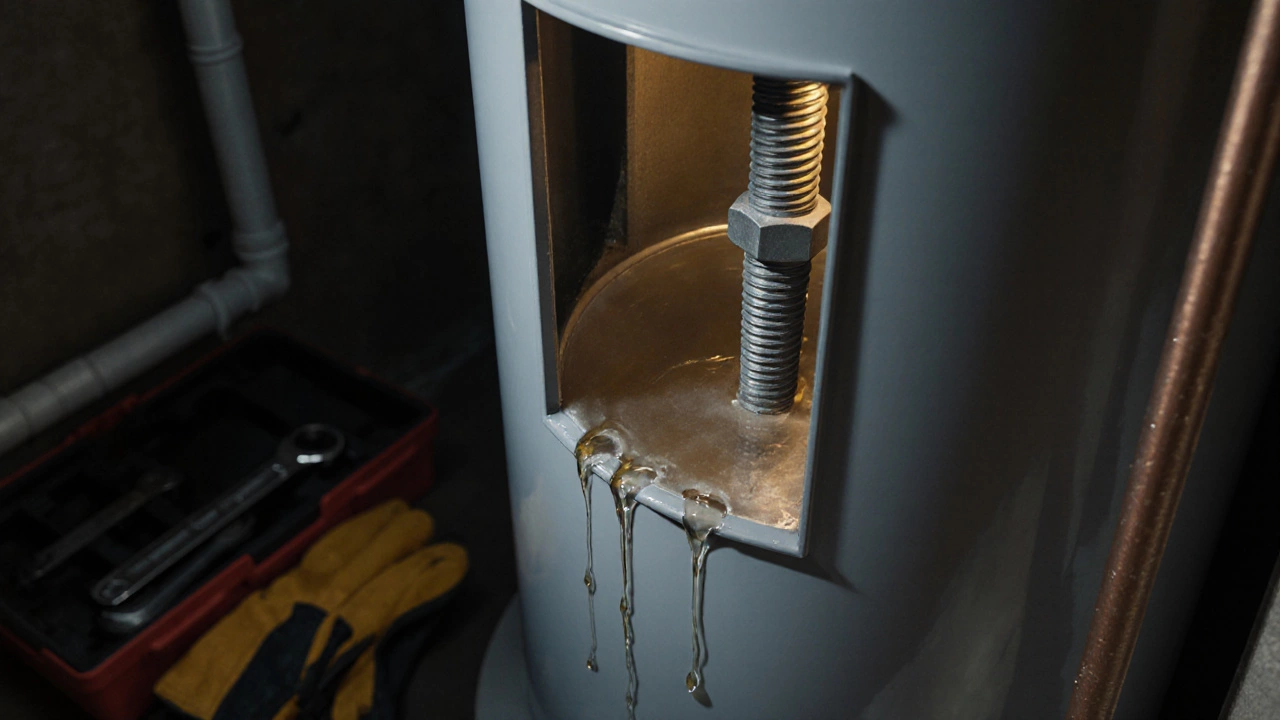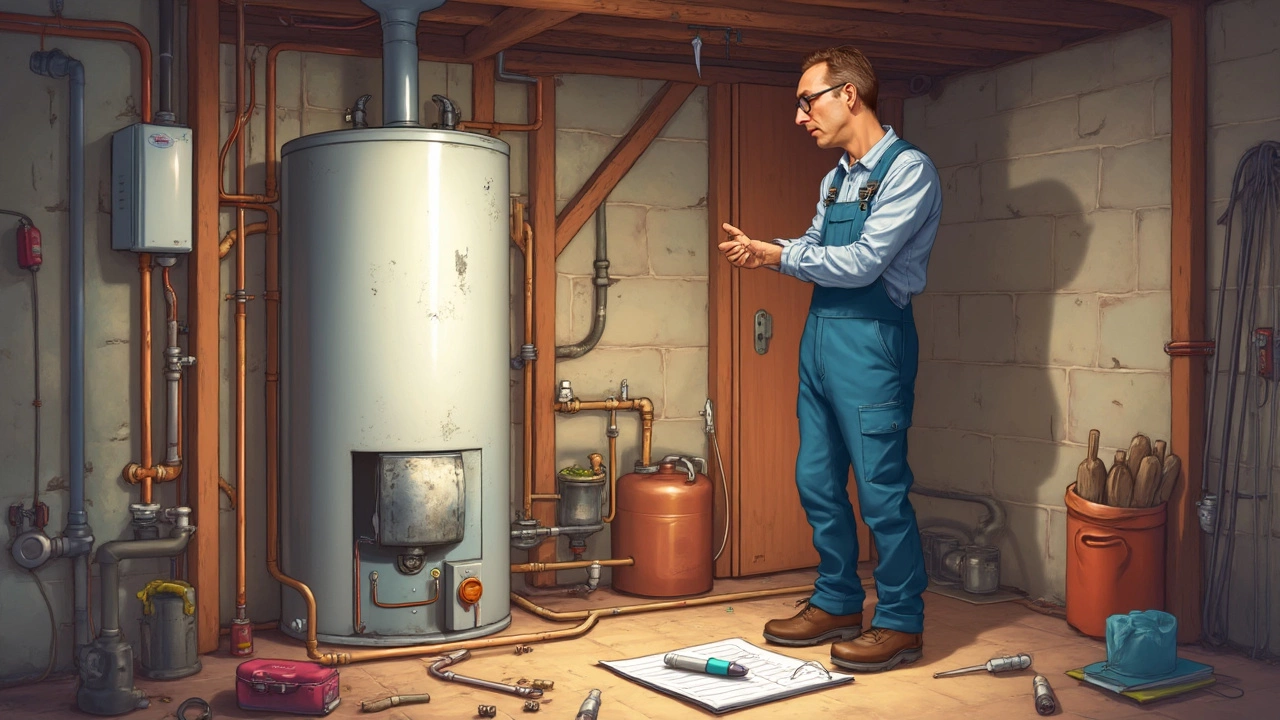If your hot water suddenly runs cold or you notice rusty water, the culprit is often the anode rod. This humble metal rod sits inside every tank‑type water heater and sacrificially attracts corrosion so the rest of the tank stays safe. Ignoring a worn‑out rod can mean a leaky heater, a pricey replacement, and a cold shower you didn’t sign up for.
An anode rod is a long, usually magnesium or aluminum, piece of metal screwed into the top of the water heater. It’s designed to be the first thing that corrodes. Think of it like a sacrificial pawn in a chess game – it takes the hits so the real pieces (the tank walls) don’t break.
There are three main types: magnesium (most aggressive, good for soft water), aluminum (better for hard water), and zinc‑aluminum (works well in areas with a lot of chlorine. The right type depends on your local water chemistry, but most UK homes get away with magnesium.
Checking the rod is easier than you think and takes about 15 minutes. First, turn off the power or gas to the heater and shut off the cold‑water supply. Let the tank cool for a couple of hours – hot water can scorch you.
Grab a ½‑inch wrench, locate the hex head on top of the heater, and loosen it. Pull the rod out; if it looks mostly corroded, pitted, or less than half its original length, it’s time for a new one. New rods usually come with a small washer and screwdriver‑type slot for easy removal.To install, wrap Teflon tape around the new rod’s threads, screw it in hand‑tight, then give it an extra quarter turn with the wrench. Turn the water back on, let the tank fill, then restore power or gas. Within a few minutes you should see water flow normally.
Pro tip: set a reminder in your phone to check the rod every two years. Most homeowners skip this step and pay for a full heater swap later. A quick inspection now can save you hundreds.
Remember, if you’re uncomfortable with any step – especially dealing with electricity or gas – call a local pro. Taunton Appliance Repair Solutions can handle the job fast and at a fair price.
Bottom line: the anode rod is the unsung hero of your hot‑water system. Keep it healthy, and your water heater will thank you with endless hot showers and fewer emergency calls.
Posted by
Orin Trask
0 Comments

Learn how to spot a failing anode rod, inspect it safely, interpret the signs, and replace it to protect your water heater from corrosion.
read morePosted by
Orin Trask
0 Comments

Water heaters always fail in the same spots: tank bottoms and fittings. Learn exactly where, why, and how to prevent disasters with down-to-earth tips anyone can follow.
read morePosted by
Orin Trask
0 Comments

Ever wondered how often you should replace the anode rod in your water heater? This guide has got you covered. The anode rod is a key component that prevents rust and extends the lifespan of your water heater, but it doesn't last forever. Learn how to inspect it and discover tips to keep your water heater running smoothly.
read more